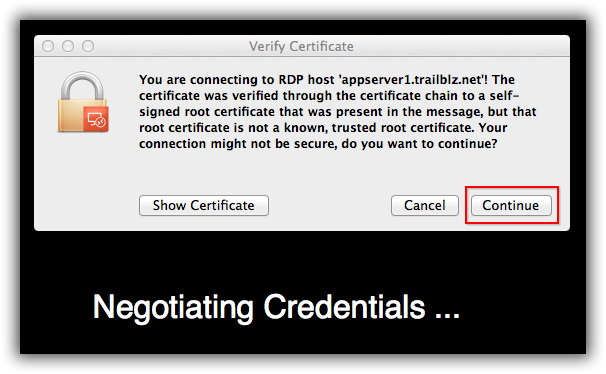Microsoft Remote Desktop Server Mac
- Microsoft Remote Desktop Server Mac Download
- Microsoft Remote Desktop Server Manager
- Microsoft Remote Desktop For Macos
Nov 05, 1934 Download this app from Microsoft Store for Windows 10, Windows 8.1, Windows 10 Mobile, Windows Phone 8.1, Windows 10 Team (Surface Hub), HoloLens. See screenshots, read the latest customer reviews, and compare ratings for Microsoft Remote Desktop. Puoi eseguire il client Desktop remoto per Mac per utilizzare desktop, risorse e app di Windows dal computer Mac. You can use the Remote Desktop client for Mac to work with Windows apps, resources, and desktops from your Mac computer. Per iniziare, usa le informazioni seguenti e, se hai dubbi, consulta le domande frequenti. Jul 27, 2016 I have tried using CoRD, old version of Remote Desktop for Mac, the newest version and still have issues. The one user that works has the newest version of Remote Desktop for Mac. The local IP scheme (192.168.1.x) of users is the same as the local IP scheme where the server is. Mar 19, 2020 According to Microsoft, RDC will have problems in OSX Lion and greater. Copied info: 'Microsoft Remote Desktop Connection Client for Mac (version 2.1.1) is not intended for use with Mac OS X v10.7 (Lion) or later.' Here is a thread where someone got it working. Error: 0x204 when trying to connect to server using Microsoft remote desktop app on Mac Hello Team, I have a Mac and was using MS Remote Desktop to access a PC computer we use as a server.
Those with issues, can they ping (fqdn / ip) and resolve the server ok? Do they have a valid IP, Gateway and DNS address?
Table of content microsoft word mac. What happens when you actually try to connect, let's say with cord?
Can you telnet to the server on port 3389 ?
There should be no need to install a cert, it might prompt you to 'accept' or 'verify' the server and that should be it.
Can they connect ok when they are on the same network?
Have you tried to give the MAC a different IP so you know it's not a conflict?+
You might have routing issues with them being in the same subnet..
The following page(s) contain instructions on using Remote Desktop to connect to Faculty & Staff Windows computers on the UMKC campus (from off-campus). Your campus computer must be powered on to receive connections.

Don't know your computer name or don't know if your account has the correct permissions? Find out here. If you need assistance, please contact the IS Technology Support Center or your IT Liaison.
Please note:Microsoft Remote Desktop Server Mac Download
Before you attempt to connect to UMKC resources remotely, please make sure your operating system (Apple OS X) has all applicable security updates installed.To connect to your campus Windows PC from a Mac you will need to use the Microsoft Remote Desktop application for Mac version 10.3.8 (or higher). If you are using a university-owned Mac, you may already have this app installed. Please contact the Technology Support Center or your IT Liaison if you have questions about using this software on a university-owned Mac.
| Supported | Default Icon | Client Name |
| Microsoft RDP v10 Link to Download | ||
| Microsoft RDP v8 | ||
| Apple RDC |
Mac OS X Remote Desktop Connection Instructions
- Open the Microsoft Remote Desktop application
- Click the '+' icon
- Select PC
- For PC Name, enter the name of the remote computer to connect to. Or check How to find my computer name
- For User Account, click the dropdown to change the setting
- Click Add User Account
- For User Name, type UMKCusername@umsystem.edu in DomainUsername
- For Password, type your UMKC Username Password. Note: you will need to update your Remote Desktop settings every time you change your UMKC Username password.
- Click Save
- For Friendly Name, enter the PC name
- Click on no gateway to change the setting
- Select Add Gateway from the dropdown
- For Server Name, enter tsg.umkc.edu
- For User Account, click Use PC User account
- Select your UMKC username from the list
- Click Add
- Click Add again
- To initiate the connection, double click on your PC Name tile
- Click Show Certificate
- Click Always Trust to prevent seeing this warning again for the PC specified
- Click Continue